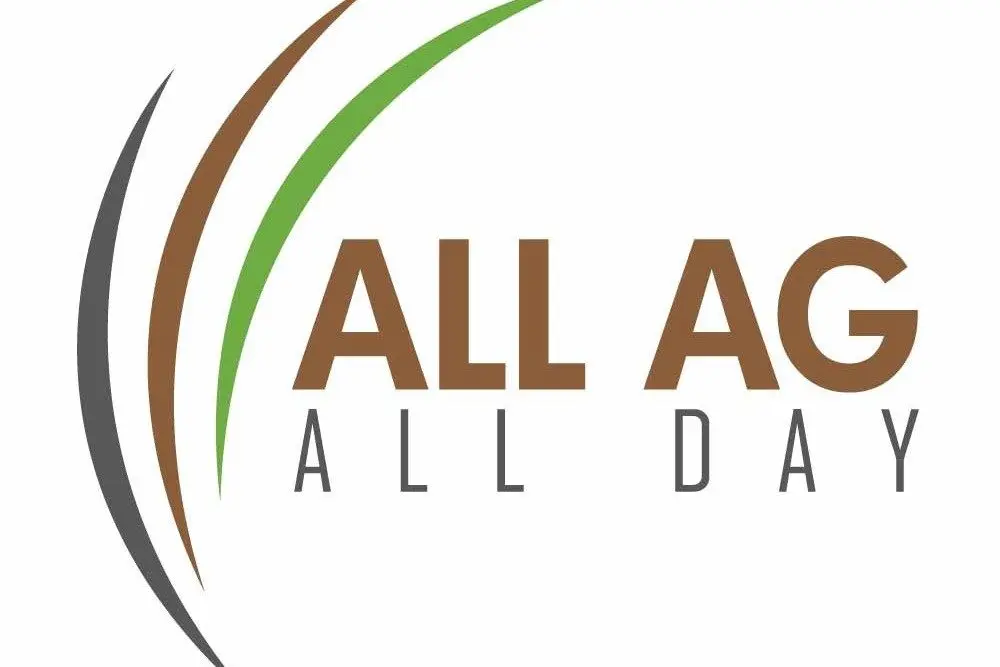
All Ag, All Day is the nation's only full-time farm radio station with studios in Floydada and Nashville, TN (www.AllAgNews.com)
Trump Sets Hard Lines As China Halts Soybeans
NASHVILLE, TN – Producers face real-market risk as Washington and Beijing inch back to the table — with agriculture at the tip of the spear. According to Bloomberg, Treasury Secretary Scott Bessent has said the US and China will hold talks later this week in Malaysia
President Trump has sketched pre-talk demands that include renewed Chinese soybean buying, curbs on fentanyl, and no “rare-earths” squeeze — and he’s floated tariffs up to 100% if Beijing doesn’t move. Those stakes pull farm commodities directly into a larger strategic fight, raising volatility around export demand and pricing.
Beijing’s leverage is visible on the ground: China bought no U.S. soybeans in September — the first shut-off since 2018 — while boosting pulls from Brazil and Argentina. Analysts frame the pause as a pressure tactic ahead of talks, with soybeans used to squeeze U.S. farm country and gain negotiating room on broader issues. That dynamic leaves bins and basis exposed as Gulf flows slow and crushers compete for nearby supplies.
Structurally, China has signaled it can live without U.S. farm and energy goods by diversifying origins and boosting domestic output, and prior “phase-one” targets were never fully met — reminders that headline purchases can slip after the photo-op. Any new commitments will need verifiable volumes, timelines, and enforcement to be meaningful for growers.
Farm-Level Takeaway:
With China halting U.S. soybean purchases and talks tied to broader strategic issues, growers face renewed export uncertainty. Market strength will depend on verifiable buying commitments and short-term demand from non-China buyers, making near-term sales, storage space, and basis management critical while trade negotiations unfold.
**********
U.S. and India Resume Trade Talks Amid Tariff Tensions
NASHVILLE, TN – Trade officials from Washington and New Delhi are meeting this week to restart formal negotiations aimed at a broader U.S.–India agreement. The current round follows five earlier sessions this year and comes as both sides weigh tariffs, energy imports, and market access ahead of 2026 trade planning. India’s Commerce Ministry confirmed that Commerce Secretary Rajesh Agrawal is leading the delegation, building on September meetings in Washington described as “constructive” but short of a breakthrough.
The talks resume under pressure from high U.S. tariffs — roughly 50 percent on some Indian imports — and Washington’s demand that India reduce its purchases of Russian oil. President Trump reiterated last week that existing duties will remain until those flows stop. Both governments have expressed optimism but caution that discussions will continue into late October before any deal is announced.
Agriculture remains one of the most sensitive areas. India’s Commerce Minister Piyush Goyal has said repeatedly that any agreement must protect farmers, fishermen, and small producers. U.S. negotiators are pressing for greater access in farm goods, processed foods, and biotechnology while India resists concessions that could disrupt its domestic market. Observers expect agriculture to anchor this week’s agenda alongside manufacturing and energy trade.
Farm-Level Takeaway: Talks highlight the widening role of agriculture in U.S.–India trade policy, though neither side appears ready for major concessions before tariff issues and oil imports are resolved.
**********
Southern Farmers Expand Online Buying, Reassess Precision Ag Tools
NASHVILLE, TN – Rural broadband growth is reshaping how farms across the South connect and compete. A new USDA survey released in August 2025 shows sharp increases in online input purchases and marketing activity, even as some producers scale back precision agriculture tools amid tighter margins. The biennial Farm Computer Usage and Ownership survey — conducted by USDA’s National Agricultural Statistics Service since 1997 — tracks how producers access and use internet-based technologies in their operations.
Between 2023 and 2025, every southern state reported higher rates of farmers buying agricultural inputs online, with Louisiana, Mississippi, South Carolina, and Texas each recording more than 100 percent growth. About half of U.S. farms now report purchasing inputs over the internet. Roughly 25 percent of southern farms conduct agricultural marketing activities online — slightly below the 29 percent national average — though participation fell in Georgia and Missouri.
Precision agriculture adoption moved the opposite direction explains Devon Mills, Assistant Professor with Mississippi State Extension. Seven southern states, including Tennessee, North Carolina, and Alabama, saw declines in use between 2023 and 2025, mirroring a 19 percent national drop. Analysts suggest producers may be pausing high-cost technologies to reduce expenses, even as internet-based tools become central to daily operations.
Farm-Level Takeaway: Southern farms are deepening online engagement for cost savings and market access, while higher-cost precision technologies face renewed scrutiny amid tight budgets.
**********
Global Ethanol Summit Brings International Buyers To Washington
WASHINGTON, DC – Nearly 450 global ethanol buyers, producers, and policymakers are in the nation’s capital this week for the 2025 Global Ethanol Summit — a major industry gathering focused on expanding ethanol’s global reach and sustainability profile. Hosted by the U.S. Grains & BioProducts Council with support from Growth Energy, the Renewable Fuels Association, and BASF, the three-day event features representatives from more than 40 countries and key U.S. trade partners.
The summit centers on three themes — ethanol is renewable and available, compatible, and affordable — while exploring new on-road and off-road applications, carbon intensity measures, trade barriers, and ethanol’s role in rural development and emission reductions. Pre-conference technical workshops featured presentations from U.S. and international experts, including POET, Growth Energy, the Global Ethanol Association, and the American Coalition for Ethanol. Council Director Alicia Koch said the event connects decision makers directly to U.S. agriculture and the broader ethanol value chain.
Before the summit, twelve trade teams from Asia, including delegations from the Philippines, Vietnam, and South Korea, toured U.S. corn regions and ethanol facilities in Iowa, North Dakota, and Nebraska. Nine more teams will travel after the conference to view logistics and production in other major grain states as the U.S. continues promoting ethanol’s export potential.
Farm-Level Takeaway: Global trade teams and summit discussions highlight expanding opportunities for U.S. corn and ethanol exports as nations explore renewable fuel options and reduced-carbon energy pathways.




